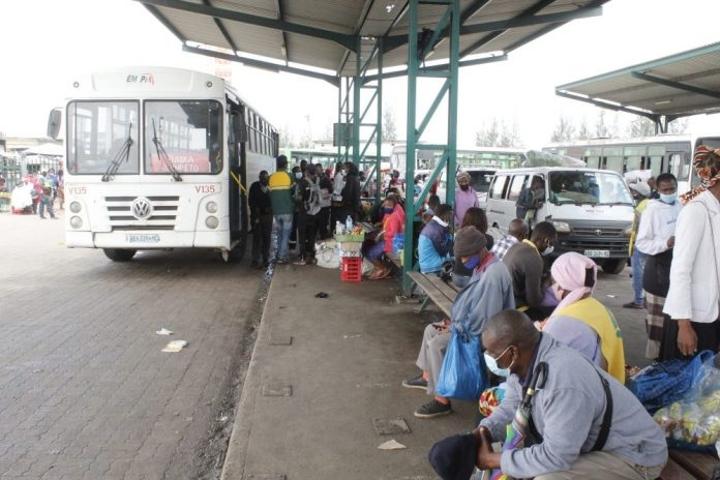Africa-Press – Mozambique. The municipality of Maputo is proposing to raise public passenger transport tariff by two meticais for routes up to 10 km and by three meticais for longer journeys.
Citizens attending the consultation hearing promoted by Maputo Council yesterday did not oppose the decision, but did however demand improvement in the provision of transportation services.
The consultation included public and private transport operators, plus Maputo residents represented by ‘chefes de quarteirão’ [heads of blocks], heads of neighbourhoods, and representatives of other neighbourhood structures.
Councillor for Mobility, Transport and Traffic José Nichols revealed that, initially, the transport operators’ proposal was for an increase of five meticais, and that the proposals presented this Wednesday were reached only after much discussion.
“Operators had the expectation that the increase would be in the order of five meticais,” Nichols said. “However, from the analysis carried out, we concluded that we could raise prices gradually. This will be carried out based on a formula to be defined, with our own indicators of the growth we want, and depending on the living conditions of the residents, so that the [transport] tariff is not only sustainable, but is also just in its application,” Councillor Nichols said.
“After this consultation, taking into account that the Municipal Assembly is the competent entity to approve tariffs, we are going to prepare the entire process to send to the Assembly for analysis and a deliberation,” he added. “This process should take place before the end of this month.”
The municipality’s expectation is that the new tariffs will be approved and come into force in December or early January 2022, Nichols said.
Councillor Nichols took the occasion to appeal for the use of electronic tickets, pointing out that this system charges the user exactly for the route covered, unlike payments in cash, where a single rate applies.
Transport operators at the consultation meeting applauded the decision, given that the current tariff is no longer sustainable for the sector to continue operating.
“The readjustment of transport tariffs in Maputo is taboo,” said José Massango, speaking on behalf of the Mozambican Federation of Road Transport Associations (FEMATRO). “The process is slow, taking several years. Meanwhile, production costs rise monthly. But our tariff has not been adjusted five years.”
Massango went on to list six points which he said justified raising transport rates, or risk “completely wrecking the business of transport”.
“The price of fuel is greatly suffocating transporters; the price of tires, lubricants and other parts have risen; the price of a passenger transport license has gone up from 3,000 to 5,000,” FEMATRO pointed out. The condition of the roads was also mentioned as “accelerating the recurring breakdowns of our vehicles”, “not to mention the COVID-19 pandemic, which greatly affected our business”.
Residents’ representatives did not oppose the decision, but did however demand that the rise in prices be reflected in the quality of services provided to users.
“I’m not opposed to the increase in the price of transport, but my question is: with this increase, will the chronic problems of disrespect, route shortening and overcrowding be overcome?” municipality resident Maria Nkale asked.
Some went to greater lengths, demanding that private transport ticket collectors wear uniforms and stop looking like “outlaws”, with dirty, torn clothes.
“It is necessary to inspect transport. There is a lot of disarray that needs to be stopped. One of the ways would be to guarantee that employees had a work contract and were registered with the social security system. Perhaps that way they could control themselves, and the misbehaviour we see in the public space be disciplined,” another participant said.
The last revision of the transport tariff took place at the end of 2016.
By
Inalcide Uamusse
For More News And Analysis About Mozambique Follow Africa-Press






